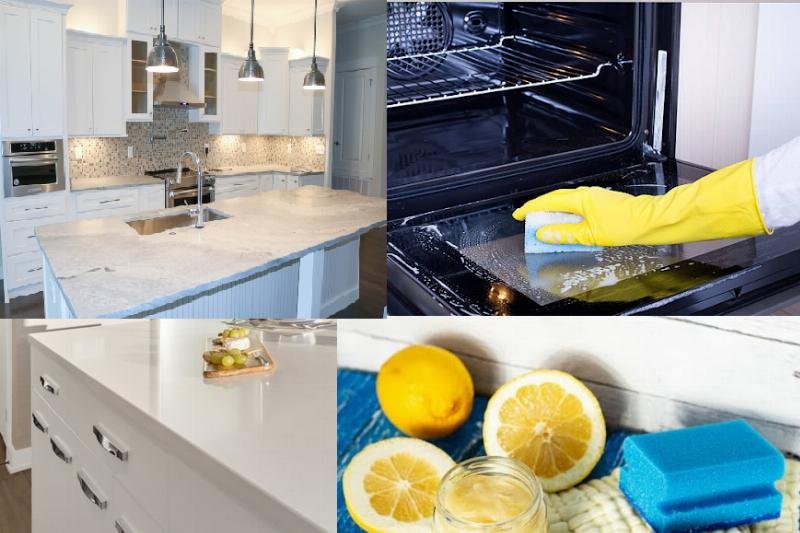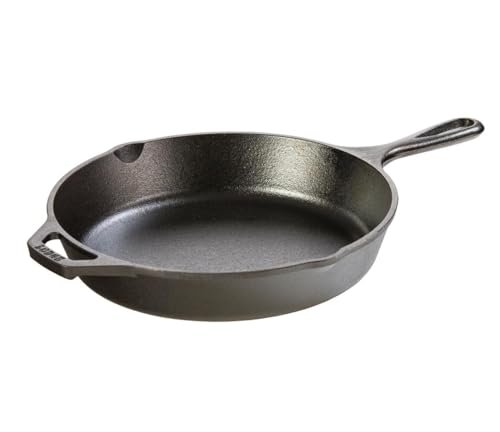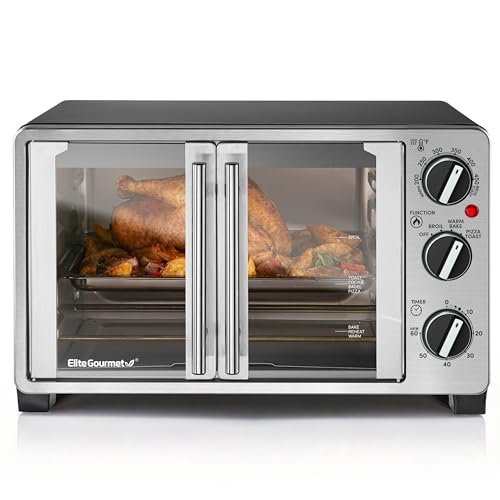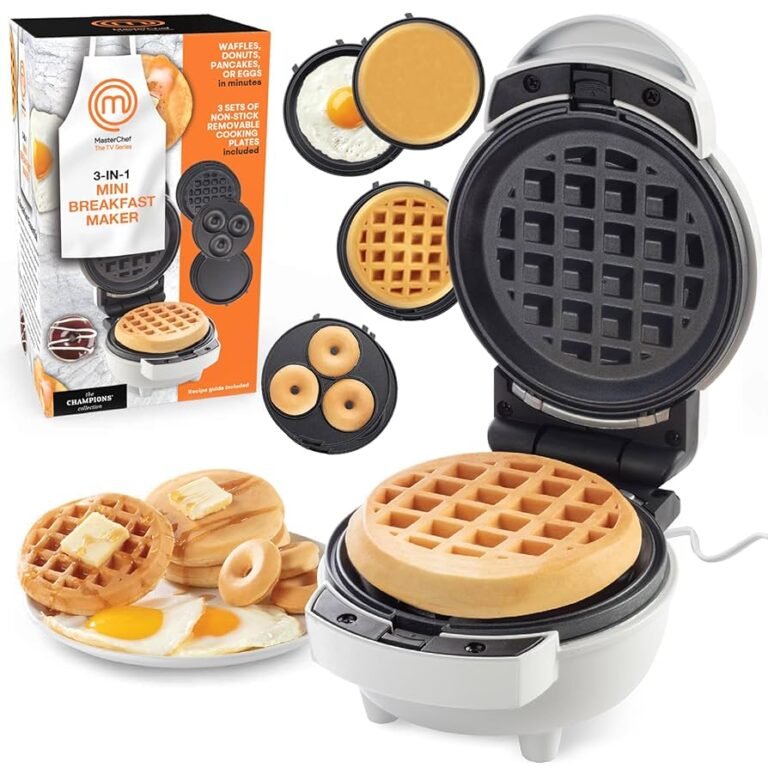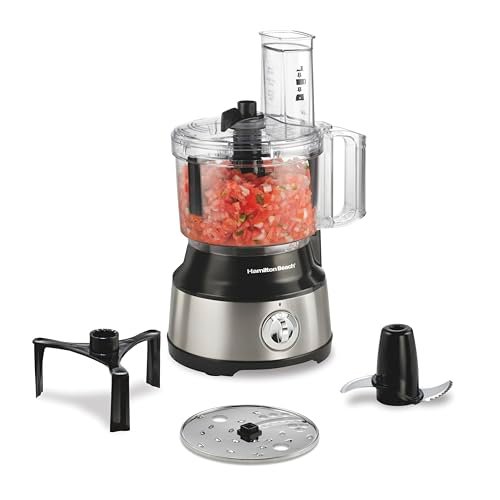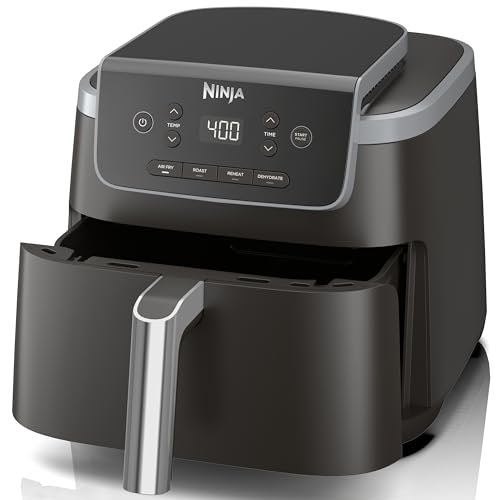What is the Effect of Oven Cleaner on Kitchen Countertops?
Have you ever grabbed a bottle of oven cleaner, ready to tackle the stubborn grime in your kitchen, and wondered if it would be safe on your beautiful countertops? You’re not alone.
Many homeowners like you are curious about the effects of oven cleaners on their kitchen surfaces. Using the wrong product can cause damage that you can’t easily undo, and no one wants to face costly repairs or replacements. You deserve a kitchen that looks great and functions well, so understanding how different cleaning products affect your countertops is crucial.
Stick around, and you’ll discover what really happens when oven cleaner meets your kitchen countertops, empowering you to make informed choices that keep your kitchen in top shape.
Chemical Composition Of Oven Cleaners
Oven cleaners are powerful solutions designed to tackle tough grease and grime. Their chemical makeup is crucial to their effectiveness. Understanding these components helps in knowing their effect on kitchen surfaces.
These cleaners often contain harsh chemicals. They are designed to break down stubborn food residues. This makes them effective but potentially harmful to certain surfaces.
Common Ingredients In Oven Cleaners
Many oven cleaners contain sodium hydroxide, also known as lye. This is a strong alkaline compound. It effectively cuts through baked-on grease. But it can be corrosive to certain materials.
Another common ingredient is sodium carbonate, often called soda ash. It enhances cleaning power. It also aids in breaking down tough stains. It is less corrosive than lye but still potent.
Potentially Harmful Chemicals
Some oven cleaners include solvents like ethylene glycol. These solvents dissolve grease but can damage surfaces. Prolonged exposure may cause discoloration or etching.
Ammonia is another ingredient found in some cleaners. It boosts cleaning action. Ammonia fumes can be irritating and pose risks if not used properly.
Safety Precautions
It’s essential to use oven cleaners carefully. Read labels for safety instructions. Always ensure good ventilation when using these products.
Wearing gloves and protective eyewear is also recommended. This reduces skin and eye exposure to harsh chemicals.
Impact On Countertops
Some countertops are more vulnerable to chemical damage. Materials like granite, marble, or wood can be affected. They may discolor or lose their finish.
Always test a small area before full application. This minimizes potential damage to your kitchen surfaces.
Types Of Kitchen Countertop Materials
Kitchen countertops come in various materials, each with unique characteristics. Understanding these materials helps in maintaining them effectively. Some materials react differently to cleaning agents like oven cleaner.
Granite Surfaces
Granite countertops are popular for their durability. Oven cleaner can harm granite’s sealant. This leads to dullness and potential staining. It’s best to use gentle cleaners on granite. This helps maintain its natural shine and beauty.
Marble Countertops
Marble surfaces are elegant and luxurious. They are also porous and sensitive. Oven cleaner can etch the marble, causing permanent damage. This results in dull spots and discoloration. Always use pH-balanced cleaners for marble.
Laminate Tops
Laminate countertops are cost-effective and versatile. Oven cleaner can strip laminate’s surface layer. This exposes the underlying material, leading to damage. Use mild soap and water for cleaning laminate.
Wooden Surfaces
Wooden countertops offer warmth and charm. Oven cleaner can cause wood to dry out and crack. This affects its appearance and longevity. Use natural oils or gentle cleaners for wood surfaces.
Potential Effects On Granite
Granite countertops have become a popular choice in many kitchens due to their durability and aesthetic appeal. But what happens when harsh chemicals from oven cleaners come into contact with this natural stone? Understanding the potential effects is crucial to maintaining the beauty and longevity of your granite countertops.
Granite is a porous material, which means it can absorb liquids and chemicals. Oven cleaners typically contain strong ingredients designed to cut through grease and grime. When applied to granite, these chemicals can penetrate the surface, potentially leading to discoloration or dullness.
Think about the last time you used an oven cleaner. Did you notice any strong odors or residues left behind? These same residues can settle into the pores of your granite, altering its appearance and texture. Have you ever considered how frequent exposure might impact the integrity of your countertops?
Signs Of Damage
One of the first signs of oven cleaner damage on granite is a change in color. A once vibrant surface might start to look faded or patchy. You might also notice rough spots or etching, where the cleaner has eaten into the stone.
Have you ever run your hand over your countertop and felt an unexpected rough patch? This could be a sign that the oven cleaner has compromised the surface. Are you noticing more stains that don’t wipe away easily?
To protect your granite, always check the cleaner’s label before use. Opt for products specifically designed for granite or mild cleaning solutions. Consider using a barrier, like a plastic sheet, if you must clean your oven near granite surfaces.
Have you ever tried using a homemade cleaner with ingredients like vinegar or baking soda? These can be safer alternatives for your granite countertops. Is your granite sealed properly? A good seal can provide an extra layer of protection against harsh chemicals.
Personal Experience
Once, I accidentally spilled oven cleaner on my granite countertop. I quickly wiped it away, but a small spot remained discolored. It was a wake-up call for me to be more cautious with cleaning products. What steps are you taking to ensure your countertops remain pristine?
Remember, prevention is key. Are you ready to make informed choices about how you clean your kitchen? Your granite countertops deserve the best care to stay beautiful for years to come.
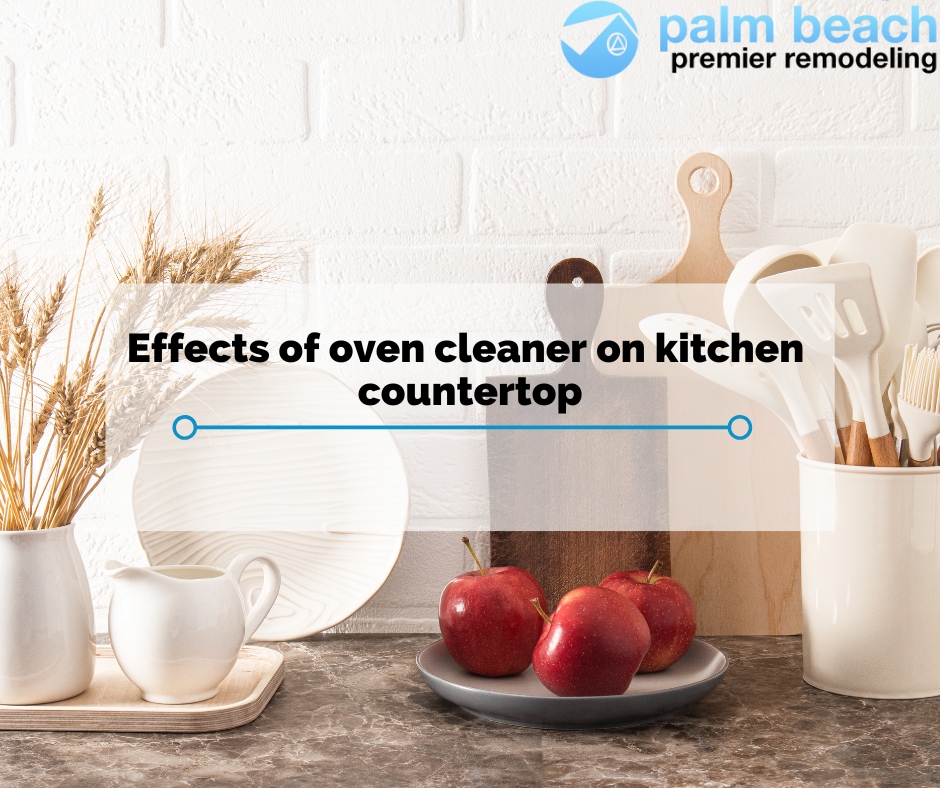
Credit: pbphomerepair.com
Impact On Marble Countertops
Marble countertops are a symbol of luxury and elegance in any kitchen. But the beauty of marble can quickly be marred by the wrong cleaning agents. Oven cleaner, with its potent formula designed to tackle stubborn grease and baked-on grime, can wreak havoc on your marble surfaces if not used with caution. Understanding its impact is crucial to maintaining the pristine condition of your countertops.
How Oven Cleaner Damages Marble
Oven cleaners often contain harsh chemicals, such as sodium hydroxide, that are highly effective at breaking down tough stains. However, these chemicals can also eat away at the delicate surface of marble. Marble is a porous material, meaning it can easily absorb substances, leading to discoloration and even permanent damage. You might notice dull spots or etching where the cleaner has interacted with the marble.
Signs Of Damage To Look For
When you use oven cleaner on marble, you might initially think it’s working wonders by cutting through grime. Yet, upon closer inspection, you could find areas that look dull or cloudy. These are signs of etching, where the cleaner has corroded the surface. In severe cases, the marble can lose its shine entirely, leaving you with a countertop that looks worn and aged.
Alternative Cleaning Methods
Instead of reaching for oven cleaner, opt for mild dish soap and warm water to clean your marble countertops. These gentle solutions can effectively clean without damaging the surface. You can also use a mixture of baking soda and water for tougher stains. Apply it gently and rinse thoroughly to avoid residue.
Personal Experience And Insight
Years ago, I made the mistake of using oven cleaner on my marble countertops. I thought it would be a quick fix for some stubborn stains. The results were disastrous—I ended up with dull patches that never regained their shine. This taught me a valuable lesson about the importance of using the right products for specific materials. Have you ever faced a similar issue with your marble? How did you handle it?
Preventing Future Damage
To prevent damage, always read the label of any cleaning product before use. Ensure it’s safe for marble surfaces. Regularly seal your marble countertops to create a protective barrier against stains and etching. This simple step can save you from costly repairs down the line.
Reactions With Laminate Surfaces
Oven cleaners are powerful. They cut through grease and grime with ease. But, what happens when they meet laminate countertops? Understanding this reaction is vital. It helps in maintaining the look and lifespan of your kitchen surface.
What Happens To Laminate?
Laminate countertops can suffer from oven cleaners. These cleaners often contain harsh chemicals. They might strip the finish of your countertop. The surface can appear dull and worn.
Potential Damage
Damage can occur quickly. The laminate may crack or bubble. This damage is often irreversible. It’s important to use the right cleaners.
Why Laminate Reacts
Laminate is made from layers of paper and plastic. Harsh chemicals break down these materials. This reaction leads to damage. It weakens the countertop’s structure.
Choose milder cleaning options. Use warm soapy water instead. Avoid products with strong chemicals. Protect your surfaces from damage by cleaning gently.
Safe Cleaning Tips
Use a soft cloth for cleaning. Avoid abrasive pads or brushes. Rinse the surface well after cleaning. Dry it with a soft towel to prevent water spots.
Consequences For Wooden Countertops
Oven cleaner can harm wooden countertops, causing discoloration and weakening their surface. Its harsh chemicals may lead to irreversible damage, affecting the countertop’s longevity and appearance. Regular cleaning with mild solutions is recommended to preserve the natural beauty of wood.
Cleaning your kitchen countertops is crucial, but not all cleaning products are created equal. Oven cleaner, known for its potent formula, can have unintended effects on your wooden countertops. These surfaces are unique and require special care. The consequences of using oven cleaner on wood can be surprisingly damaging, leading you to reconsider your cleaning choices.Understanding The Chemical Reaction
Oven cleaners contain harsh chemicals designed to break down baked-on grease and grime. When applied to wooden countertops, these chemicals can react with the wood’s natural fibers. This reaction may lead to discoloration, stripping away the finish that protects the wood. Imagine the frustration of seeing your beautiful wooden surface lose its charm in minutes.Impact On Wood Finish
The finish on wooden countertops is not just for appearance; it serves as a protective layer. Oven cleaner can strip this finish, leaving the wood exposed to moisture and damage. Picture leaving a glass of water on your countertop, only to find a permanent stain because the finish was compromised. That’s a costly mistake you’d want to avoid.Long-term Damage To Wood
Beyond immediate effects, using oven cleaner can cause long-term damage. The chemicals can seep into the wood, weakening its structure over time. This could result in splintering or warping, turning your functional surface into a renovation project. Would you risk turning your kitchen into a construction zone? Instead of reaching for oven cleaner, consider using gentler alternatives. A mix of mild soap and water can effectively clean most spills without harming your countertops. Regularly applying a wood conditioner can maintain the finish and keep the surface looking fresh. Have you considered adopting these safer habits?Personal Experience: A Lesson Learned
I once hastily used oven cleaner on my wooden countertops, thinking it would quickly solve my cleaning woes. The result was a blotchy surface and a hefty refinishing bill. That experience taught me the importance of choosing the right cleaner. Learn from my mistake and opt for methods that preserve the beauty of your wood. Your kitchen deserves the best care. By understanding the effects of oven cleaner on wooden countertops, you can make informed decisions that protect your space. What steps will you take today to ensure your kitchen remains pristine?Preventive Measures
Kitchen countertops are the focal points of many homes. Keeping them pristine requires careful consideration. Oven cleaners can have harsh effects, potentially damaging surfaces. Preventive measures ensure countertops remain flawless.
Protective Coatings
Applying protective coatings shields countertops. These coatings act as barriers against harsh chemicals. Choose coatings compatible with your countertop material. They reduce risk and preserve the surface.
Sealants prevent stains and scratches. Regular sealing maintains the integrity of the material. Check manufacturer recommendations for specific coatings. This ensures optimal protection.
Regular Maintenance
Regular maintenance is key. Clean countertops with gentle solutions. Avoid abrasive cleaners that can cause harm. Use a soft cloth for wiping. It prevents scratches and maintains shine.
Inspect surfaces periodically. Identify potential damage early. Addressing minor issues prevents larger problems. Consistent care extends the life of countertops. Invest time in regular upkeep.
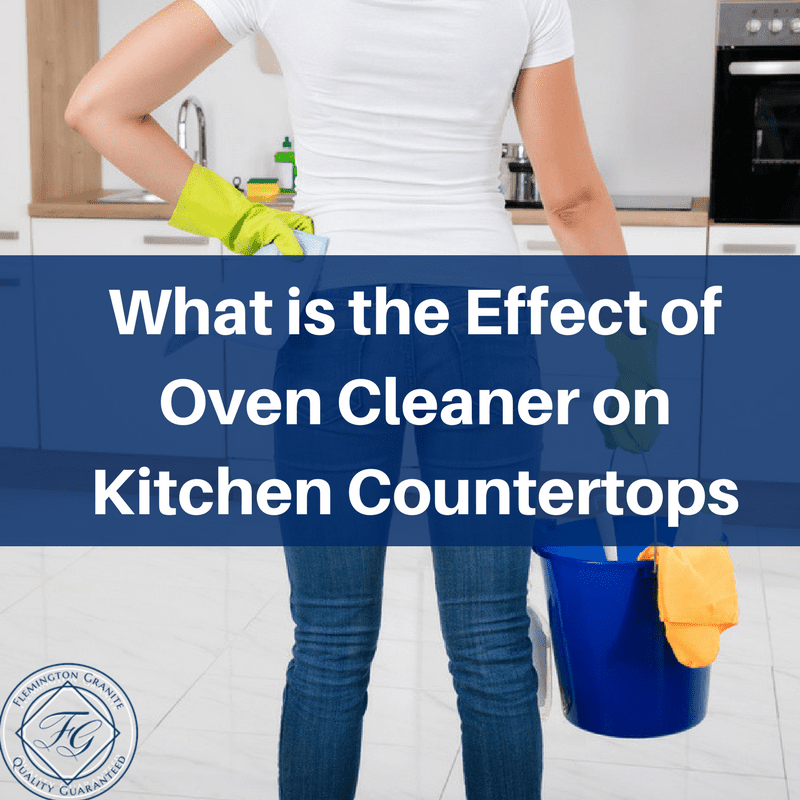
Credit: flemingtongranite.com
Alternative Cleaning Solutions
Oven cleaners can damage kitchen countertops. They often contain harsh chemicals. These chemicals can strip surfaces and cause discoloration. Many people seek safer alternatives. Natural and DIY solutions offer effective options. They protect countertops from harm.
Natural Cleaners
Lemon juice is a strong natural cleaner. Its acidity breaks down grime. Mix lemon juice with water for a gentle solution. Use a soft cloth to apply.
Vinegar is another great choice. It removes stains and odors. Dilute vinegar with water for better results. Spray onto the surface and wipe clean.
Baking soda works wonders too. It tackles tough stains without scratching. Make a paste with water. Apply and scrub gently.
Diy Solutions
A mixture of dish soap and water can clean effectively. This solution cuts through grease. Use a sponge for application. Rinse with water after cleaning.
Combine hydrogen peroxide and baking soda for a powerful cleaner. This mix removes stubborn stains. Apply the paste, then scrub lightly.
Salt and lemon juice create a natural abrasive cleaner. Sprinkle salt on the stain. Rub with a lemon half. Rinse well.
Olive oil and vinegar polish surfaces. Mix equal parts for a shiny finish. Buff with a soft cloth.
Professional Recommendations
Using oven cleaner on kitchen countertops can be risky. Professionals offer guidance to protect your surfaces. Following their advice keeps your kitchen looking new. Here are some expert tips to consider.
Test In A Small Area First
Experts suggest testing the cleaner on a hidden spot. This test checks for discoloration or damage. It helps you avoid bigger problems.
Check The Countertop Material
Not all materials handle oven cleaner well. Granite and marble may suffer damage. Laminate surfaces might lose their finish. Know your countertop type before using any cleaner.
Use Gentle Cleaning Alternatives
Professionals recommend gentle cleaners like soap and water. Baking soda can also be a safe choice. These options clean without harming surfaces.
Follow Manufacturer Guidelines
Read the countertop’s care instructions. Manufacturers often provide cleaning tips. Following these guidelines protects your investment.
Seek Professional Cleaning Help
If unsure, consult a cleaning expert. They know how to handle different surfaces. Professional help can prevent costly damages.

Credit: flemingtongranite.com
Frequently Asked Questions
Will Oven Cleaner Damage Countertops?
Yes, oven cleaner can damage countertops. It contains harsh chemicals that may cause discoloration or surface damage. Always use countertop-safe cleaners. Test any cleaner on a small area first to ensure it doesn’t harm the surface.
Is It Safe To Eat Food After Using Oven Cleaner?
Avoid eating food after using oven cleaner. Ensure the oven is thoroughly rinsed and ventilated before cooking.
What’s The Best Thing To Clean Your Kitchen Counters With?
Use a mixture of vinegar and water for cleaning kitchen counters. It effectively removes grime and bacteria. Baking soda can tackle tough stains and odors. For a polished finish, wipe with a microfiber cloth. Avoid harsh chemicals to protect surfaces and maintain a healthy kitchen environment.
What Surface Should You Not Use Oven Cleaner On?
Avoid using oven cleaner on aluminum, painted surfaces, and self-cleaning ovens. It can damage these materials. Always check the manufacturer’s instructions before using on different surfaces. Test a small area first to prevent any potential harm or discoloration. Ensure proper ventilation while applying to avoid inhaling fumes.
Can Oven Cleaner Damage Kitchen Countertops?
Oven cleaner can harm some countertops. It may cause discoloration or surface damage. Always test a small area first.
Conclusion
Oven cleaners can harm kitchen countertops. Some chemicals cause discoloration or damage. Always check the cleaner’s label. Ensure compatibility with your countertop material. Testing on a small spot helps avoid big mistakes. Natural cleaners are often safer. Vinegar and baking soda are good alternatives.
Regular cleaning prevents stubborn stains. This reduces the need for harsh chemicals. Protect your countertops by using the right products. This keeps them looking new and fresh. Always prioritize safety and care in your kitchen. Your countertops will thank you.
